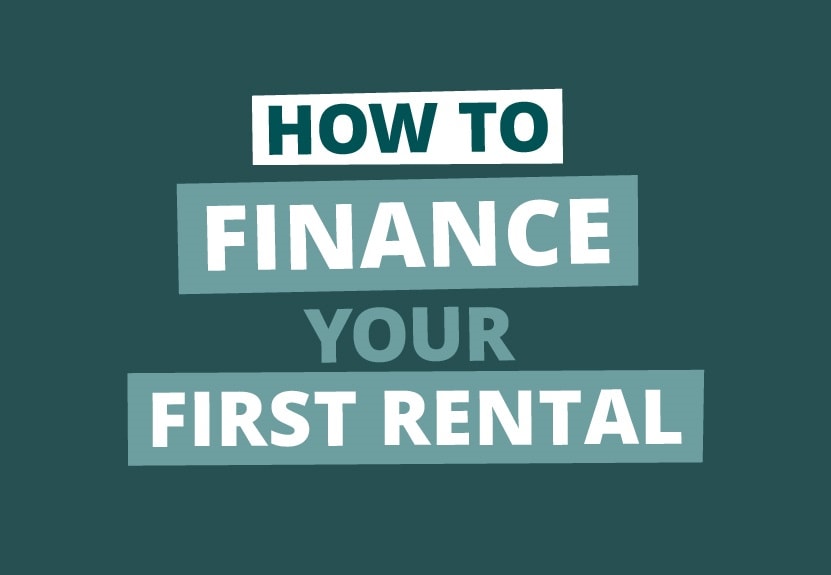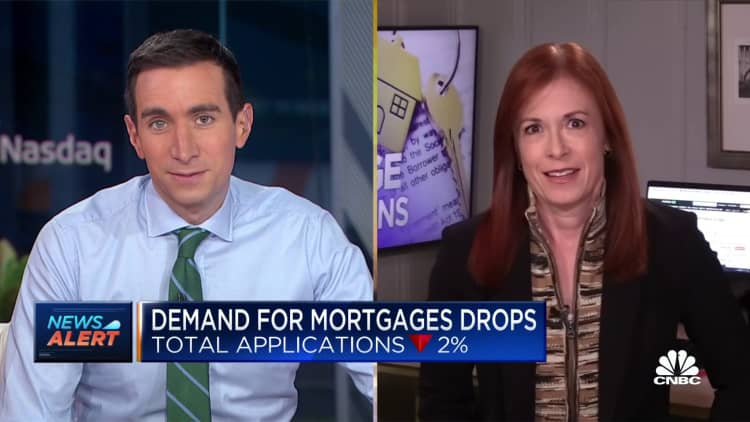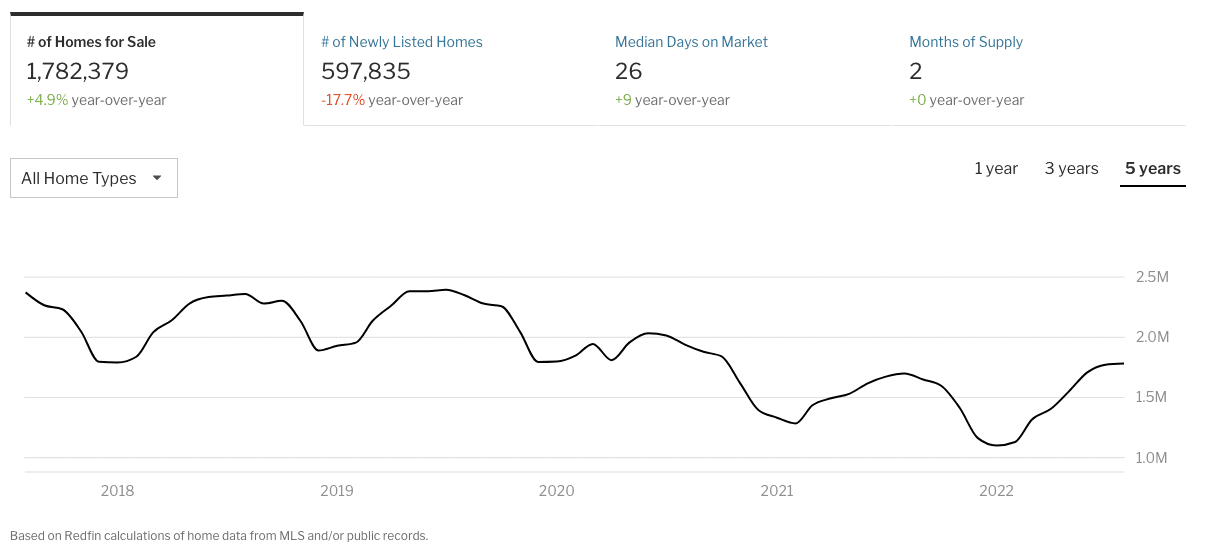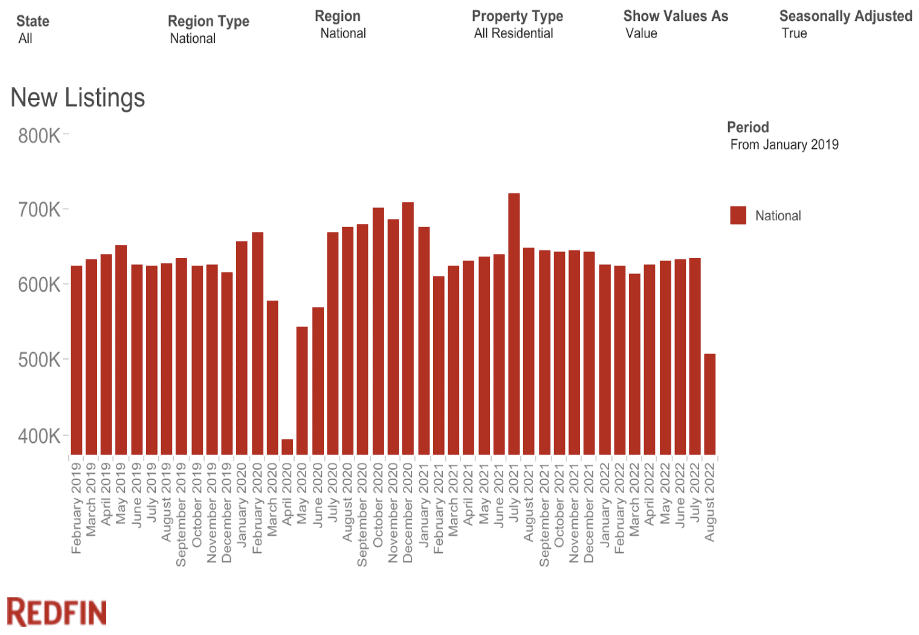Dave:
Hey, what’s going on everyone? Welcome to On the Market. I’m your host, Dave Meyer. Today, I am going to be doing a semi deep dive into a topic that has really been interesting me recently. And yes, it is nerdy, it’s a little wonky, but it is demographics. And I know that probably doesn’t sound like the most exciting topic, but I’m going to try and make this fun. We have a great interview for you and I want to also just make sure you know that demographics are actually a really important part of investing, particularly with real estate investing because it makes up a lot of demand, right? On this show, we talk a lot about supply and demand and how that really impacts the price of assets.
It impacts where rent is going to grow, where vacancy is going to be, and demand is in large part, comprised of demographics like how many people are there in the entire generation or how many renters are there total. And today we’re going to focus in on a subsection of those demographics, which is Gen Z. They are the cool kids, the youngest generation starting to enter the workforce right now. And we’re going to just talk about what they’re doing and how that impacts the housing market. So this is important. One, if you’re in Gen Z, this could really help you figure out where you’re going to live, how you’re going to maximize your financial position, how you can get started investing in real estate. But also if you’re not in Gen Z, and most of us are not going to be, this episode is still designed for you because it’s going to help you understand where demand. And I think this is critical because we’ll get into this demand not just for houses, but where demand for rent is going over the next couple of years.
Because millennials, I am one of them, sadly, we are all getting older and soon it’s going to be Gen Z that’s pushing some of the trends in the housing market a few years out. So you’re going to want to pay attention to this because as investors we want to plan several years into the future. And if you understand some of the trends that are going on with this younger generation, it could help you make more informed investing decision. So that’s what we’re going to look at today. I’m going to do 15, 20 minutes just talking, giving you a background. And then we have an excellent guest coming on to join us. Her name is Soli Cayetano.
She is the personality behind a really popular Instagram account called Lattes and Leases. She is an excellent investor. She’s only 24 years old, has something like 20 or 30 units, it’s really cool, very impressive to hear how she got started. She’s investing out of state. So I think people who are young and maybe can’t afford in their market or if you’re just like me interested in investing in out of state, she has some really good tips for you. So that’s what we’re going to get into today and hopefully this will help you understand what’s going on in the younger generation and how that’s impacting the housing market. But before we get into that, we are going to take a very quick break.
If you listen to the show or any economics, you know that millennials have really been the drivers of demand and economics over the last couple of years. And that is because household formation, basically a lot of economic activity starts when someone forms a household. And that basically means when you move out and start your own house. So that might mean maybe you’re moving out from your parents and you’re renting something for the first time or maybe two people have been living together as roommates and then they both go on and form their own household. That is this really important thing in economics because it drives demand, right? When there’s more households, that’s more demand for rental units, it’s more demand for owner occupied houses. And so millennials have been driving a huge amount of household formation over the last couple of years and that’s just based off simple things like birth rate.
So for the last couple of years, for generations we’ve always talked about the baby boomers, how they are the biggest generation and what they did had these cascading effects throughout the economy. And that was true for quite some time, but recently millennials, which are largely the children of baby boomers, so it makes sense that they are now the biggest generation. Millennials are now the biggest generation in the United States and that means that what they do economically is going to impact the rest of the country. And what’s been happening that has impacted the housing market in particular is that they’re reaching family formation years. So people who are millennials are generally now starting to reach at the high end or around 40 years old, at the low end are like 25 years old. And the peak age where people start to form families, like what I’m talking about, is 30.
So you can imagine that if we have the biggest generation of people in the United States entering this household formation years, that’s going to have a big impact. And this is one of the reasons why over the last few years when we’ve seen an increase in housing prices, and of course that’s been fueled by inflation and low interest rates, but one of the really strong foundational things that have pushed up housing prices and rent prices is that household formation has really started to take off. It was really low in the early 2000s and even in the early half of the 2010s. But over the last five to 10 years, we’ve had this huge boom of people who want to start households. And that is a powerful force because as investors we’re often trying to time the market and saying like, “Oh it’s a great time to buy interest rates, I’m going to wait for this and that.”
But if you are ready to start a family, if you want to have a child, maybe you’re even having children, that is a pretty strong motivator and people tend to form households whether regardless of financial conditions. Of course not everyone can do that, but people try and find a way to make it work. And so we’ve seen millennials driving a lot of this over the last couple of years and this is likely to continue for at least another four or five years because as I said, millennials, biggest generation, peak family formation around 30, the youngest millennials are around 25 right now. And so we still have a few more years of millennials and it does start to tail off a little bit, but I think it’s safe to say three to five years we still have a lot of millennial demand for housing in the United States.
This of course for anyone who invests long term as most of us do, begs the question what is going to happen next? What happens when Gen Z comes? Because it’s the driving force in the economy because Gen Z is smaller than the millennial generation, but at the same time it still makes up currently 20% of the US population that’s pretty sizeable. And more notably by the end of next year, by the end of 2023, Gen Z is forecasted to make up 30% of the labor force in the US. So if you’re talking about who’s earning money, who’s spending a lot of money, Gen Z is sort of the up and coming player. And even though they might not be leading household formation, they will be leading the demand for housing and a lot of economic activity over the next couple of years.
I actually found this chart that is really helpful by a company called Yardeni Research, we’ll put a link in the bio, and it basically shows that people under 35 have a home ownership rate of about 39%. And that sounds pretty good and that’s probably mostly millennials. But if you look at the next generation people who are 35 to 44, that home ownership rate jumps up to 62%. So that’s pretty serious. That means that millennials and Gen Z combine could increase their home ownership rate by 50% just to get to where the next generation is because millennials and Gen Z generally speaking have faced a lot of economic challenges that weren’t there in previous generations. Just speaking for myself, I graduated in 2009, which was right into the great recession. We all know that it took years and years for wages to come back after that.
Just as wages were starting to rebound, we’ve faced this whole COVID fiasco over the last couple of years, which has created further economic difficulty. And so even though we see data that shows that these two generations, millennial and Gen Z, both want to buy homes, their home ownership rates are much lower than they are for previous generations were at the same age. So that is a good sign for housing demand in my mind because that means people still want to buy homes, they expect to buy homes but they haven’t been able to yet. And so that means that they still want to and hopefully if affordability improves over the next couple of years, they will be able to. So that just shows that this is an important demographic to pay attention to because this generation could be fueling demand. When you look at Gen Z, a staggering amount of them want to buy homes.
And I think there’s this media narrative that says, “Millennials, they don’t want to buy home. Gen Z, they’re renters forever, they don’t want to own anything.” Honestly, I think that’s nonsense. I think that just is a reflection that they can’t afford to buy homes right now, but everyone wants to buy homes. There’s been data that shows that 86% of people in Gen Z want to purchase a home. They want to, and 45% of Gen Z wants to purchase a home in the next five years. So that is encouraging for the housing market demand. This idea that people don’t want to buy homes and are content being renters, I think is really honestly pretty dumb. And that is just not necessarily true. And which is why I wanted to get into this episode again is because what Gen Z prefers, what they like, where they’re moving, what they’re doing does really matter.
That said, I think it’s going to be tough for Gen Z to start becoming a force in the housing market over the next couple of years because of affordability. It’s just so low. When you look at that same survey I was talking about, it shows that 66% of people who want to buy home say that they will face significant financial obstacles in buying that home with over 20% saying that they don’t have enough savings for a down payment, 18% saying that they won’t be able to find a home in their price range. So those are the same thing. Honestly, I don’t know if that was just a bad survey question. 16% said they don’t have a good enough credit, which could be a huge problem with rising interest rates. And lastly, 11% saying they have too much student loan debt. I do think this was taken before the debt forgiveness thing, so I don’t know how that was impacted.
But again, I can see why Gen Z, even though they want to buy home, are facing some of these affordability issues. If you look at Gen Z’s just medium income, it’s lower. And of course that makes sense because they’re less experienced and they’re in entry level jobs. The oldest Gen Z I think is 24 right now. So they’re still in entry level jobs, but just to contextualize this, the median income for someone in Gen Z is about $46,000. Whereas if you jump up to millennials, just one generation above, it’s $76,000. So that’s a lot more, right? You’re talking not double but 60, 70% more income. And so that means in this era of super high home rates, we’re probably going to see difficulty for Gen Z in buying a home. Furthermore, so just you guys could say basically what I’m trying to say is they’re going to have a hard time and I think that really matters for the housing market and for these people because it could fuel rent demand, which we’ll talk about in a minute.
But according to Rocket Homes, I don’t know if you’re heard of Rocket Mortgage, but they’re one of these big mortgage companies, they did the survey, and they show that 81% of Gen Z underestimates how much it costs to purchase a home. So not only are they already forecasting problems and earning less, but they’re also underestimating how much it costs at the same time. And this company who did this survey, Rocket Homes, estimated that it will take them on average six years longer than it would given what they think it’s going to take. So it could take six years longer than it would. So to me that’s really interesting because I said millennial demand will probably keep up for four to five years. But if Gen Z demand starts to lag, that could put downward pressure on asset prices and home appreciation in that lag period.
And that is a very broad generalization because what we’re talking about here specifically is only entry level homes. As millennials age, the demand for move up homes, more luxurious, bigger homes is going to still increase, right? They’re going to keep making waves throughout the economy as they age. I’m just talking about entry level homes here when I’m talking about Gen Z. But it’s something to note and I don’t think we’re already going to see this glut and crash in those prices because there aren’t enough entry level homes right now. But I think it is just important to know that demand in that area could slow down over the next couple of years and would have some impact. That is a long way away. I think it’s hard to really forecast the exact impact of that, but it’s just something to take note of because basically 45% of the people who of Gen Z say they’re going to buy home in the next five years.
But the same time that Rocket Homes thing is saying that on average it’s going to take them six years longer than they’re expecting. And so that might actually just push all this Gen Z home buying activity. So that is really interesting because basically Gen Z, again, they want to buy homes but they face these large affordability issues already. And I think where we are in the economic climate is going to make it even harder because wages have been going up a lot over the last couple of years, not compared to inflation, they are not keeping up with inflation. But just in absolute terms, they have been going up. Now with the Fed raising interest rates and probably a recession that we’re either in currently or coming pretty soon, we are probably going to see wages peak because the labor market is starting to soften a little. The most recent jobs data is actually quite good given where we’re at.
But I do think we will start to see wage growth come down. The same time, the Fed is saying that they’re going to keep interest rates high, and housing prices, they’re probably going to come down but I think it’s unlikely that they’re going to come down on a national level more than 10%. In certain markets, people are forecasting 20%, 25% in some of the hottest markets. And that could come true, but I think generally speaking, 10% with high interest rates, 10% decline in prices with elevated interest rates isn’t going to make it way easier for Gen Z to start buying homes. So I think this is something to keep an eye on is can our newest generation of workers afford homes? Because that’s important for society and for the housing market in general. So that’s just something to watch. Generally speaking, you are seeing Gen Z react to this by buying houses but only in less expensive cities.
So according to this data that I just found, it was an article from a site called moveBuddha. They did this analysis of some data that showed where Gen Z is buying homes and the top five markets that I’ve seen are pretty small cities. They’re not the names that you hear a lot about. Number one is Madison, Wisconsin, and that’s been a trendy city, but it’s a lot less expensive. Fargo, North Dakota, that one came out of left field for me. Columbus, Ohio, that’s been a hot market recently because of that affordability. Lincoln, Nebraska and Missoula, Montana. So again, smaller cities, some of these have gotten really expensive as everything has, but relatively to the Seattles, the New Yorks, the Austins, that is not as expensive. After you get out of the top five, you do see some of the bigger, more expensive cities. So San Francisco’s six, Denver is seven, Minneapolis, which is expensive, is nine, and Washington D.C. is 10.
But you have Burlington, Vermont, another small city there in there at eight. And then in the top 15, you see cities like Pittsburgh and Cincinnati. Pittsburgh, if you listen to our recent show about affordability, is the most affordable city in the entire world according to some analysis. So I think if you’re looking for where Gen Z and some of the demand for entry level homes might be over the next five to 10 years, I would look at these affordable cities because you look at this combination of economic factors where you’re seeing work from home, low affordability, but people can work from anywhere. They might start moving to these cities where they can actually afford a home and start gaining some of the benefits of either investing in real estate or home ownership. If you are a Gen Z investor, these are some markets that you should consider house hacking or buying in.
Our guest, Soli Cayetano, who’s going to be coming on in just a minute, invests in Cincinnati but lives and grew up in the Bay Area. So she found a place where she could buy and research something more affordable. And I think this is of one of these generational trends that is likely to continue that for many years, people primarily invest in where they live and through resources, like this show and BiggerPockets in general, and because of this work remote trend and the internet just in general, people can invest anywhere.
And so I think we’re going to start seeing Gen Z investors as well as Gen Z home buyers gravitate towards these cities that are a lot more at affordable because they are facing pretty stiff challenges in the more expensive cities. Now the second point before we bring Soli on I want to make is this trend that makes home ownership more difficult for Gen Z will likely bolster demand for rent for longer because people have to live somewhere and they’re becoming a larger and larger part of the workforce in the US and if they can’t afford homes, unfortunately, they’re going to have to rent.
And when you look at rent, I wanted to find some of the cities where Gen Z was moving so you can see some of these demographic shifts and I was surprised because if you listen to the show that a lot of the demographic trends, a lot of the migration has been out of big cities and towards the Southeast, sometimes towards the Midwest, these more affordable cities, especially since COVID. So you see places like Florida and Texas, Alabama, Tennessee has been the hotspots for demographics and growing population. But when you look at Gen Z, that is not necessarily the case. And this is cool and interesting because as an investor you should pay attention. I’m going to share two surveys with you. New York Times partnered with a company called CommercialCafe.
It’s a commercial real estate company that provided the data, New York Times published it. And basically they took the top 20 cities where Gen Z renters are best for Gen Z renters. And this is based on affordability, recreational opportunity, unemployment rate, commuting options, the Gen Z population and other metrics. The number one city is Atlanta. That has definitely been a boom city over the next couple of years. But number two is Minneapolis, which I was surprised by. Definitely not the profile of some of the other cities that have seen big population growth followed by Boston. Again, not really one that’s been up there. Then you have Tucson, Raleigh, and Columbus, all big popular destinations. Then you see Seattle, a very expensive city. Austin, a very expensive city. New York is up there. So you really see different trends with rent demand and it’s really the theme that I would say is economic growth.
This isn’t based what we see, this is based off affordability and everything, but the trend I see across these cities is places where there are a lot of jobs. Atlanta, Minneapolis, I think Minneapolis has more Dow 500, top hundred, whatever, companies than anywhere else in the [inaudible 00:20:40], Fortune 500, something like that. Minneapolis has more headquarters there. That’s a huge economic powerhouse. Boston has a huge biotech, it has a lot of banking. Seattle with tech. Austin, all these tech companies are moving to Austin. New York’s still the center of finance for the entire globe. Houston with oil and gas. These are the cities Gen Z appears still to be attracted to and moving towards the cities where economic growth is the biggest, at least in rental terms. Remember, I’m not talking about home demand because when we looked at home demand, we saw smaller cities that were more affordable.
But when we look at rent demand, we’re seeing bigger cities that are less affordable but have the biggest economic growth and I guess that makes sense. If you’re young, you’re ambitious, you’re trying to make more money, get your career started, you want to go to one of these big cities where the job opportunities are the best. I also looked at this other survey that showed the trending cities for Gen Z renters and the number one was San Francisco, number two, Jersey City, which is right outside New York City. Number three is New York City, Manhattan. Then we have Philadelphia, Boston, Arlington, Virginia. So six cities leading the way in the northeast. I mean I guess Virginia’s not northeast, but whatever. It’s on the East Coast. So that’s really interesting because we’ve had this talk about how a lot of people have been moving to the southeast and I think this is more like millennial Gen X.
People are a little bit older maybe of families, but the younger generation, rental wise, are moving to the places that the other are being left. So after those top six, we have San Jose, California, that’s where Google and Silicon Valley. Then we have Seattle, Minneapolis, LA, Peoria, I don’t even know where that is, Arizona, Long Beach, San Diego. Some of these big more expensive cities are still attracting young people. Maybe they’re attracted to the nightlife. But I think that really makes a lot of sense because people want to start their career in a place where they can have fun and where they can also have some of the highest paying jobs in the entire country. So that is something just to pay attention to as an investor. If you’re thinking everyone’s moving to affordable places, that might be true for Gen Z when it comes to home prices.
But when it comes to rent demand, so low vacancy, higher rent growth, it’s still the big cities that the youngest people who will drive rental demand over the next decade are moving to the big cities. So I think that is a different narrative than we’ve been hearing about other migration patterns and one of the things I wanted to make sure that we talked about on today’s episode. So with that, let’s just summarize what I just said. Basically, Gen Z, just like every generation, they want to buy homes but they’re facing really difficult economic conditions. And so I don’t expect that they’re going to be fueling a lot of demand in some of the more expensive cities. For home buying, they probably will be active but in some of the less expensive cities. But they are fueling rental demand in big population centers, big economic centers.
And that’s going to probably play out over the next 10 years and bode well for the rental markets probably, if I had to guess, best for multifamily rental markets over the next couple of years in some of those bigger cities like Seattle, New York, Austin, Minneapolis, keep showing up on those lists. So it’s super cool, really interesting thing to pay attention to. But in addition to just talking about data and numbers, I do want to get some context from a member of Gen Z who is investing and has a pulse on what’s going on with her peers. So let’s bring in Soli Cayetano from Lattes and Leases to talk about what it’s like to be a Gen Z member in today’s housing market. Soli Cayetano, welcome to On the Market.
Soli:
Thanks for having me.
Dave:
Well, thanks for being here. I have to say, I think this is the most intimidated I’ve been for an interview. Gen Z people, I’m scared of them generally.
Soli:
Why?
Dave:
I don’t know. You’re cooler than me. I know you’re just cooler than me. I don’t know any of the trends or don’t know how to talk to Gen Z people. So hopefully I can pull this off.
Soli:
We’ll teach you some. I’m like the oldest Gen Z-er you can get. So we might have to bring a younger person on the show.
Dave:
Oh God, that’ll make me just feel terrible. I’m already feeling old.
Soli:
18 years old. 18 is usually free.
Dave:
So people listening to this might know Soli from her great Instagram account, Lattes and Leases. But, Soli, could you tell our audience just a little bit about yourself and how you’re involved in real estate investing?
Soli:
Sure. So I am 24, the oldest Gen Z-er you can be. And I’m located in the Bay Area, California right now. I got started investing just over two years ago and obviously it’s very expensive to invest in the Bay Area. So I built my portfolio in Cincinnati, Ohio. So right now I have about 29 units between Cincinnati and a small town in Georgia into combination of long term, midterm, and short term rentals.
Dave:
That is incredibly impressive. How did you get started with this at such a young age? What inspired you to get into real estate investing?
Soli:
So I was always surrounded by real estate. So I was in the real estate association in college. When I was 19, I was a sophomore in college, I needed a job really badly because I had no money and ended up getting a job at a commercial brokerage firm. So I worked pretty much full time in an office leasing position through college as well as eventually leading the real estate association. So those are my two touch points. I listened to BiggerPockets, had some friends who bought some out of state rentals, but I was always so busy between working full time and going to school that I never really considered investing until the pandemic hit.
So pandemic, wiped out office leasing, obviously no one wanted to lease office spaces at the time and also school shut down, I was a senior in college. And when everything shut down I rediscovered real estate investing and decided it was now or never that I’d have the chance to really focus on investing and that’s when I committed to buy my first property. So from that commitment day, I believe it was 12 weeks till I closed on my first property in Cincinnati.
Dave:
Wow, good for you. That’s unbelievable. That is super fast. How did you pick Cincinnati?
Soli:
I went for work actually. So the year before, I was moving a client over to Cincinnati and I had the best time. We were wined and dined. The food was incredible, a lot of young people. It was super lively, beautiful waterfront. And then I looked on Zillow and the houses were a hundred thousand dollars and I was shocked. So I met an investor while I was out there who had a couple single families and I didn’t really have any, I guess, what I like to call competitive advantage in any other markets and I didn’t know how to research markets. It’s really, I guess, just ignorance that I chose the market but ended up working out really well.
Dave:
Yeah, you’re a prophet. I think Cincinnati has some of the highest appreciation rates right now, even in, we’re recording this, in late September 2022. Even as a lot of markets are starting to come off their highs, we’re seeing that Cincinnati’s doing really well and has some of the strongest rent growth in the entire country. So you picked well.
Soli:
It kept floating. Yeah, no, I mean I learned this later, but they spent over a billion dollars I think in the last 10 years really revitalizing their downtown because they were having trouble retaining students and so they reinvested, made it an amazing place to live, and that’s why a bunch of people are sticking around.
Dave:
I feel like everyone I know who is from Cincinnati just passionately love Cincinnati. I’ve never been, but it’s one of those places that if you’ve been there or you’re from there, you absolutely love it.
Soli:
Have you tried their chili?
Dave:
No. That’s a thing?
Soli:
Also passionately love their chili. I personally think it’s gross, but it’s like cinnamon chocolate chili. You’ll have to try it sometime.
Dave:
Oh wow. Kailyn, our producer, knows my dream in life is to somehow merge real estate investing and being Anthony Bourdain and travel around and invest in real estate and eat so that maybe I’ll get to do that one day. So we do want to talk about being in Gen Z and being able to invest. So do you have peers who are also investing or are you one of the only people in your age group you know that are investing in real estate right now?
Soli:
So I’d say that it’s a little bit regional. So in the Bay Area, I honestly don’t know that many people who invest in real estate because I think that a lot of people have the perception that you have to invest where you live. And so here it’s million dollars, 2 million properties, it’s really difficult for young people to invest. But I actually lived in Cincinnati for about four months this year and there are tons of young real estate investors. I would go to young real estate meetups, there was a ton of house hackers, a lot of people who own maybe two properties. It was a lot more common over there because the houses are a lot more affordable.
Dave:
That’s encouraging to hear. I got started relatively early out of necessity, not a great job market when I graduated college. And you hear in the media that Gen Z is not as interested in home ownership or investing. It sounds like that’s not what you’re seeing in your experience.
Soli:
I think it depends. I think that Gen Z-ers love to consume content. They’re content consumers from TikTok, from Instagram, usually from social media, from YouTube. And so the algorithms have gotten so good at showing you more of what you’re interested in. And so if you are interested in investing they will continue to feed you content. That’s how it happened for me. So I started following couple, I created at my real estate Instagram, I was following investors and so what did they do? They showed me more people who were interested in investing. They kept feeding me more real estate investing content. And so I think that made me think, oh, this is normal. Everybody’s investing in real estate. I’m the weird one. And that what really propelled me to keep buying real estate. If someone were to curate their feed to be about shopping or about news or about other things, I think the algorithms and what you feed yourself with content tends to take you in a different direction and then that becomes your world. Does that make sense?
Dave:
Yeah, yeah, absolutely. It’s great when it feeds you helpful content, but it’s terrifying that you could get in this spiral of either negative or unproductive content and you get consumed by it.
Soli:
It’s choose your own adventure. So I think that before when Instagram had a chronological feed, you could follow one person who was interested in finance and you could follow one person interested in clothes, you could follow your friends too. Now it’s not really no longer the case. It is based off of your likes and your views and how long you spend looking at things. And so they can really curate based off of just one thing. It’s hard to get more diversity.
Dave:
Yeah, yeah, that’s definitely true. It’s very interesting new frontier and I’m sure it will shape your generation for the next couple years or for the rest of your lives around how you interact with these social media platforms. It’s pretty crazy. In terms of your peers, you said you’re from the Bay Area, do most of your friends, peers still rent or are people trying to buy homes? Because one of the things I’m really interested in is, I don’t know if you’ve heard this, but millennials are now the driving force behind demand in the housing market and there’s always media that says, “Gen Z, they don’t want to buy houses, they’re going to be renters forever, they don’t want to be tied down.” We have some data around that, but I’m just wondering anecdotally, do you see any truth in that?
Soli:
Again, I think it’s a little bit regional. So I think in the Bay Area, a lot of people stay renters for a really long time, if not forever. My parents are still renting because they can’t afford to purchase a house. And so I was doing some calculations. Right now, I’m in Sausalito where the average home is $2 million. And so if you want to purchase a house, you can’t use an FHA, you can’t use a first home buyer’s loan, you got to put down half a million dollars. And for me as an investor even I feel like if I had half a million dollars, I’d probably invest in real estate then put it into a $2 million primary residence.
And so I think locally where a lot of my friends are, it is people will be renters for a long time as well as a lot of the digital nomad. I guess everyone during the pandemic wanted to travel more, they wanted more experiences, they wanted to not be tied down like you said. And so I think for the short term, there might be a lot more traveling, less home ownership, especially with people very discouraged about the housing market and how difficult it was to actually win an offer. So I think it’s mixed. Again, the country is so diverse. I think the Bay Area is in a bubble. We live in a bubble and the rest of the country is not like us, most of the country. But locally I would say primarily renters especially because it’s just unaffordable to live here.
Dave:
That makes a lot of sense. I actually pulled some data that showed where Gen Z people are buying homes. And this isn’t investors necessarily, this is home buyers as well, but it’s a lot of these smaller cities and less expensive cities that you’re talking about. So the number one was Salt Lake City, which has a higher average price, but then after that it’s Louisville, Kentucky, Oklahoma, Cincinnati, where you invest, Indianapolis, Phoenix and Minneapolis, which are both expensive, but Birmingham, St. Louis, and Virginia Beach. And it just makes me wonder, this is just speculation if we’re going to start to see those places start to grow faster because this is where Gen Z, not just as investors but as home buyers in general are going to be more attracted to these they’re almost like tertiary cities because they’re just more affordable and everything else is so expensive right now.
Soli:
And you can also work remotely a lot now. And so I know a lot of people in Cincinnati who have remote jobs getting paid Bay Area salaries to live in a place where you could buy a home for one year’s worth of your salary. So I think that that has really changed the playing field as well with a lot of companies being okay with you working wherever you want to work or living wherever you want to live.
Dave:
Totally, yeah, I mean it’s really going to be interesting to see, because we’ve talked about on this show and like Soli just said the amount you can earn is no longer tied to your proximity to these economic hubs anymore. We’ll see what happens, because I know a lot of companies are starting to call people back to the office so it’ll be interesting to see what happens there but I generally think you’re right.
Soli:
I actually worked in office leasing and so that was a question that we talked about all the time is, are company is going to force people back into the office? And what we saw a lot of the time is that if they tried to force people back into the office, people would just quit and try to find remote work. And so I don’t know where the future of the office holds. I think that there’s a lot of community to be built in offices, but I think people value flexibility a little bit more. And so I’m not really sure people will come back.
Dave:
Yeah, it’s interesting. I saw some data that showed that 30%… The amount of days total across the country that are worked remote have leveled off at 30%. But not to name the companies or people, but two people I’m close with both work for these large publicly traded companies that both said they’re never going to call people back and have both been called back to work in the last six weeks. So it’s interesting, I’m just curious what will happen. But I agree. I mean I’m all for the flexibility, so I personally like it, but I also sometimes really miss being in an office. So I think the hybrid solution is going to be popular and can support moving to some of these other cities. So on your Instagram, I know you often give advice to other Gen Z potential investors. What are some of the main pieces of advice you give to people who are your age and younger who are looking to get into real estate investing?
Soli:
Yeah, I think that house hacking is a very good place to start. So if you can buy a home with three and a half percent down, I think oftentimes Gen Z-ers don’t have that much money to start investing. And so it’s like how can I invest with not that much time and not that much money and house hacking is an easy way to start. So put three and a half percent down, honestly not very much money if you live in a lower cost area and then rent out the other rooms or the other units. So I think that’s a great way. If you do live in a really expensive market like me and maybe doesn’t make sense to house hacked, look at a state. So I would say those are the two options I give people is either looking at more cost effective market that cash flows or house hack.
Dave:
That’s very, very good advice in both things that work pretty well, even in down market conditions or confusing market conditions like the one we’re in today or the ones we’re in today. So you have, what did you say, 29 units now. What’s next for you? What are you planning? What are your ambitions in real estate investing?
Soli:
Honestly, I haven’t bought very many this year, so I think I’ve only bought maybe five units because I’ve been really busy stabilizing my portfolio. And now that it’s almost completely stabilized it, I feel like it is on the verge of re-exploding, which I’m really excited about. And so I’ve been looking making tons of offers on right now portfolios of single families and small mall ties. So not single families but portfolios of them as well as dipping my toes into office buildings, which is what I used to work in. So have put offers in on offices, warehouses and actually should hear back on one today, so cross [inaudible 00:39:21].
Dave:
Oh, awesome. Well, good luck. Is that in Cincinnati as well?
Soli:
Those ones are in Augusta, Georgia. So Augusta’s another, I guess, tertiary market where the Masters tournament is held and two hours outside of Atlanta. Same kind of landscape as Cincinnati. Very cash flowing, but good amount of appreciation as well.
Dave:
Nice. That’s great. Well good luck. Well, thank you for joining us. Is there anything else you think our listeners should know either about investing as a Gen Z investor or about your peers and how their preferences about the economy or their living preferences might come to shape the housing market in the coming years?
Soli:
Yeah, I mean I think there are a lot of Gen Z-ers who are probably interested but feel alone because they don’t have peers who are interested in investing locally or friends that they talk to often, which was my case. And so I had to really build my community online, but then I found hundreds of thousands of people who also shared the same interests and thousands of people who are my age or even younger. And so I would say that if Gen Z-ers are interested and they do feel a little bit alone or lost, that there’s a giant community online of people who are excited for you and there to support you.
Dave:
All right, great. Well, thank you. I mentioned it at the top of the show, but where should people who want to connect with you do that?
Soli:
Yeah, Instagram is probably the best place. So my Instagram name is @lattes.and.leases.
Dave:
All right, great. Soli Cayetano, thank you so much for joining us today.
Soli:
Yeah, thanks for having me, Dave.
Dave:
All right, big thanks to Soli. She is a really, honestly, an inspiration. If you’re 24, if you’re young, it’s incredible what she’s doing. I think it’s really interesting to see and just prove that out of state rental investing is possible. A lot of people are intimidated by it. I have been in the past, but it shows like if you build systems, you find a great agent, which you can do on BiggerPockets. There’s a great agent finder tool. If you can build a team, you can find markets that are growing where there is Gen Z demand, where there’s millennial demand, but it is more affordable and it’s more reasonable, more practical for you to get involved. And as a non Gen Z member, someone who’s an investor, I think it’s really important to listen to what Soli is talking about how location dependent this demand is going to be.
I think we talked about that in the beginning where we saw certain markets are going to capture Gen Z demand for home purchases while other markets are going to capture demand for Gen Z rent. And so this is just something you should consider in your investing strategy is what’s coming down the pipe of the next couple of years. Are you buying multifamily? Because buying multifamily in a place where home sales are going up is great, but if rent prices aren’t going up, that’s how commercial properties are valued. So you want to find the place where rent demand is going to be really strong, not just where there’s population growth all by itself. So that is something to pay attention to and I think Soli did a great job explaining that to us. Thank you, guys. Hopefully this was helpful to us. If you have any questions about this episode, please hit me up on Instagram where I am @thedatadeli. If you want to connect with me at all, you can do that there.
Ask me questions, give me feedback. If not, I welcome you to check out my brand new book. I’ve been talking about it a lot, but I’m pretty excited about it. It’s called Real Estate by the Numbers, helps you understand how to be an analytical real estate investor. I think that’s the only way to be a real estate investor, but of course I’m biased, so you can check that out. I wrote it with J Scott. It’s available on biggerpockets.com/store. Thank you all so much for listening. I will see you next time for On The Market. On The Market is created by me, Dave Meyer and Kailyn Bennett, produced by Kailyn Bennett, editing by Joel Esparza and Onyx Media, copywriting by Nate Weintraub, and a very special thanks to the entire BiggerPockets team. The content on the show On The Market are opinions only. All listeners should independently verify data points, opinions, and investment strategies.
















